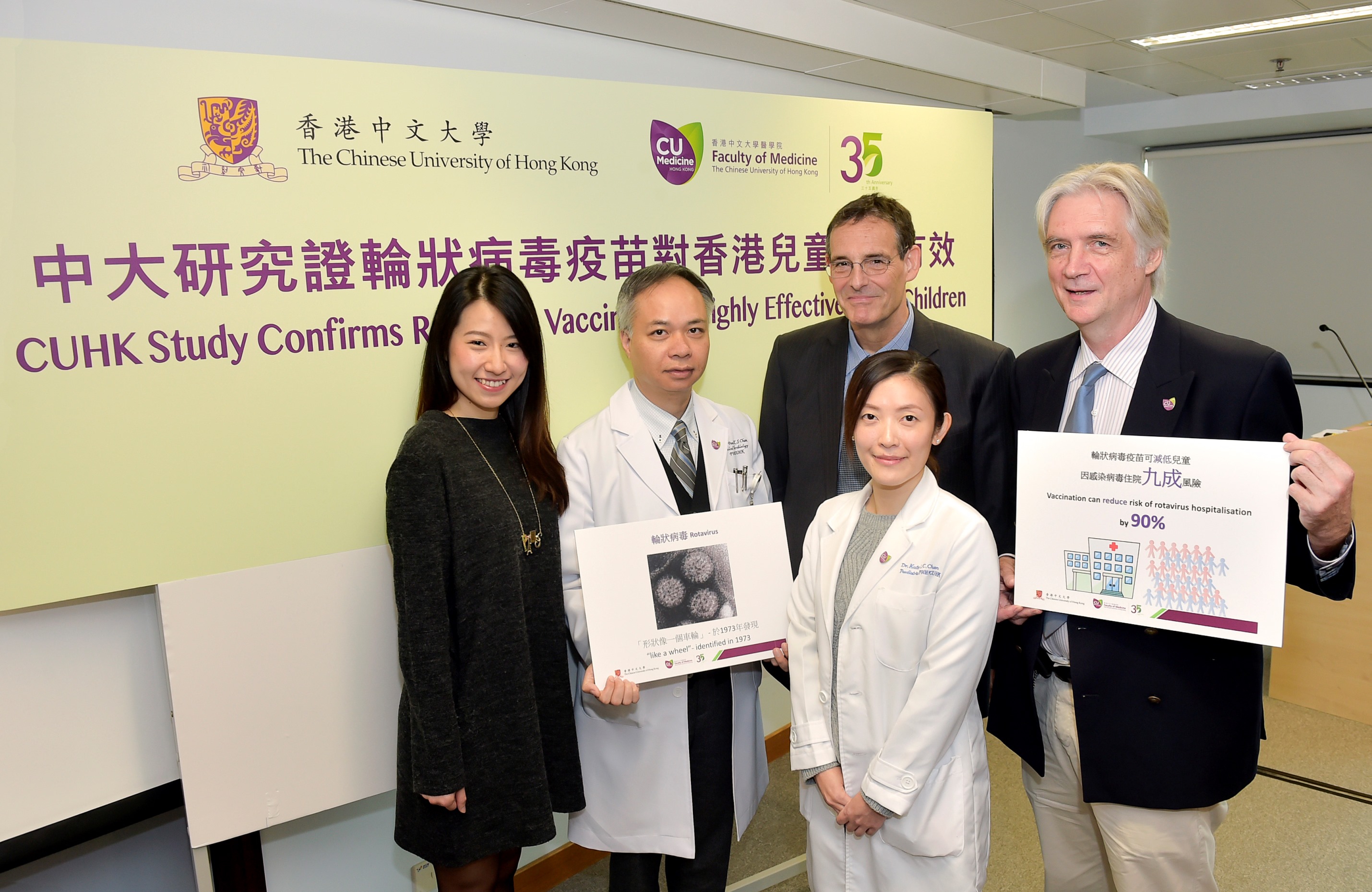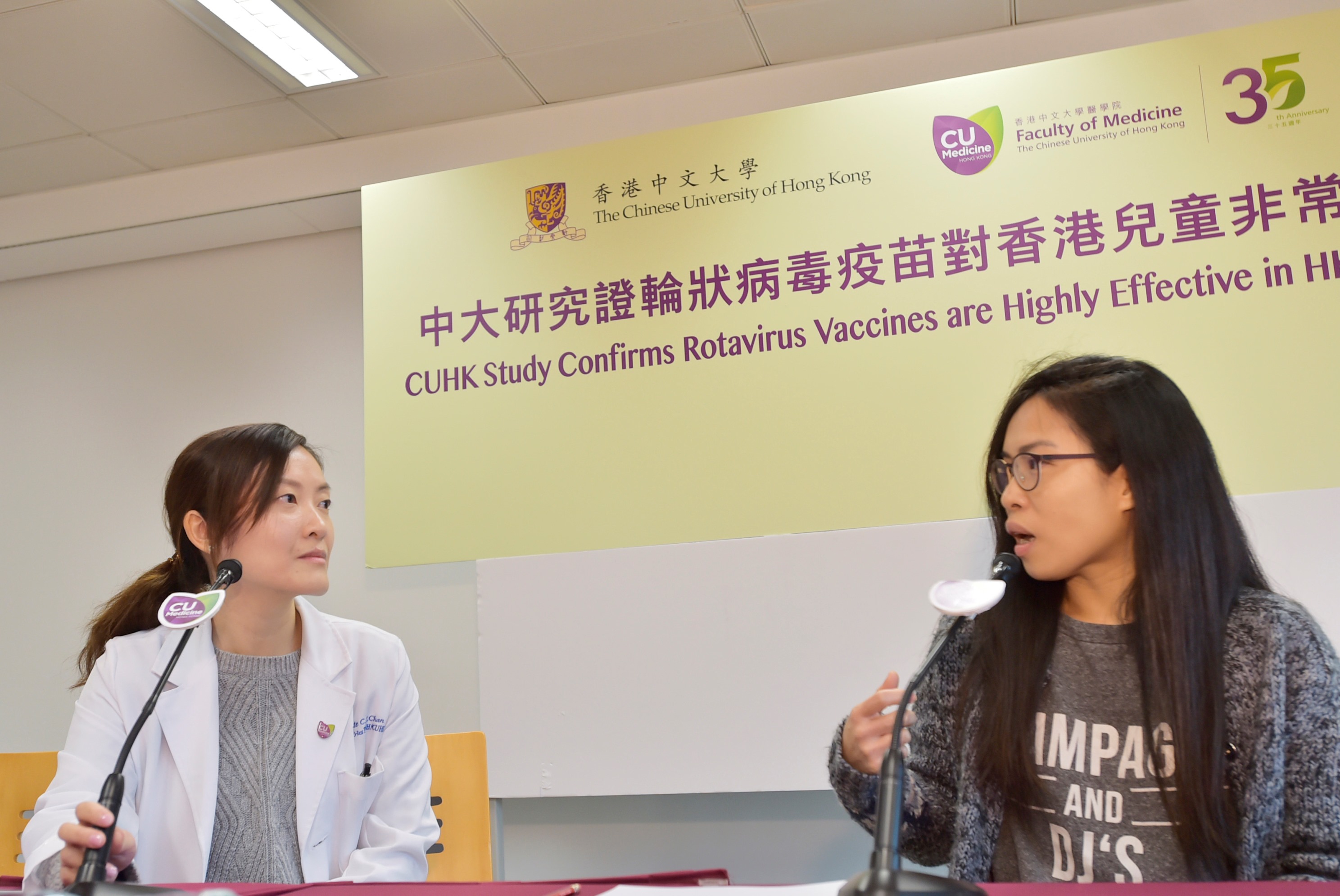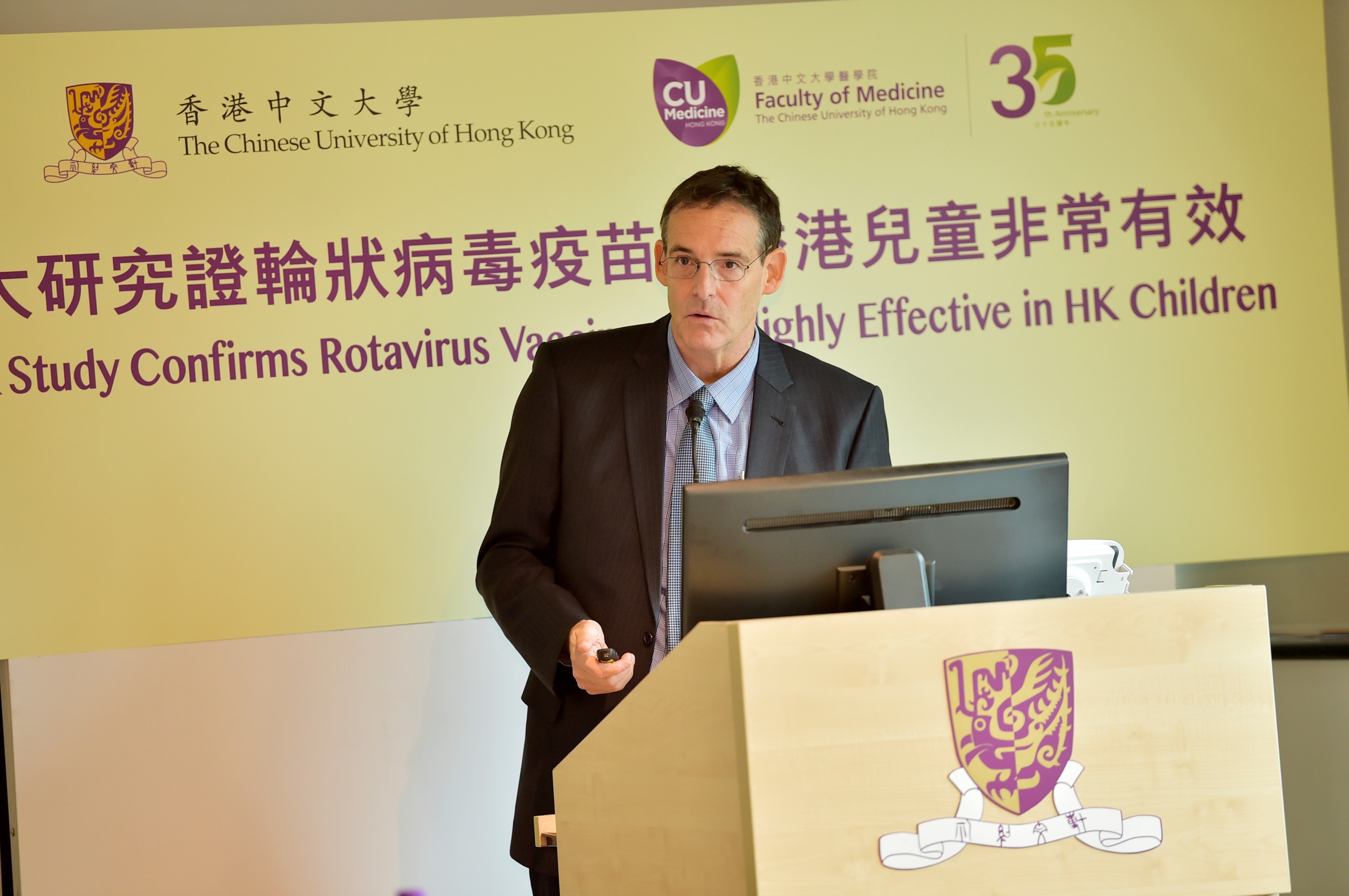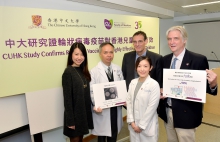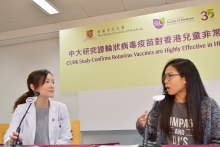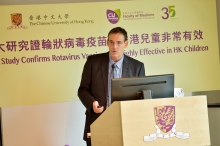CUHK
News Centre
CUHK Proves Rotavirus Vaccine Highly Effective for HK Children
The Faculty of Medicine of The Chinese University of Hong Kong (CUHK) has conducted the territory’s first real-world study on the effectiveness of rotavirus vaccine during the peak season of rotavirus in 2014/15. Recently published in the international medical journal Vaccine, the results showed that rotavirus vaccines are highly effective in preventing children from hospitalisation caused by severe diarrhoeal disease. In Hong Kong, rotavirus vaccine has not yet been included in the routine Childhood Immunisation Programme. It is also found that some parents are not aware of such vaccine.
Rotavirus vaccine can prevent 90% cases of hospitalisation
Rotavirus is one of the most common causes of severe diarrhoea in children and its primary mode of transmission is faecal-oral. It is more common in cooler months. Although deaths from rotavirus are rare in Hong Kong, the disease is so common that almost all children will be infected before the age of 5, and approximately 1 in 33 children under the age of 5 is admitted to hospital annually with rotavirus gastroenteritis.
Prof. Paul Kay Sheung CHAN, Chairman, Department of Microbiology, Faculty of Medicine, CUHK explained, ‘Rotavirus typically causes watery diarrhoea and occasional vomiting and fever. Hospitalisation is required for severe cases, and some children may develop complications including convulsions.’
The study conducted by CUHK Faculty of Medicine is the territory’s first post-licensure evaluation on the effectiveness of rotavirus vaccine. Over 400 cases of hospitalised children at the age of 30 days to 5 years with acute gastroenteritis from six public hospitals were studied during the peak season of rotavirus in 2014/15, from 31 October 2014 to 23 April 2015. All cases were tested for rotavirus infection and asked if they have ever received rotavirus vaccination.
|
|
Ever received rotavirus vaccination |
|
Rotavirus-positive patients (126 patients) |
2.4% (3 patients) |
|
Rotavirus-negative patients (278 patients) |
24% (67 patients) |
Among the 126 children tested positive for rotavirus infection, only 3 had been vaccinated against rotavirus disease.
Ms. Karene Hoi Ting YEUNG, coordinator and lead author of study, a postgraduate student at the Department of Paediatrics, Faculty of Medicine, CUHK said, ‘Our study shows that rotavirus vaccine is highly effective and can prevent 90% cases of hospitalisation from the disease. Take the 2015 birth cohort of 60,000 newborns as an example, an estimated 1,800 children will be admitted to hospital with rotavirus. As implicated by our study, an approximate1,600-1,700 cases of rotavirus hospitalisation could be prevented by vaccination.’
Prof. Tony NELSON, Principal Investigator of the study, Department of Paediatrics, Faculty of Medicine, CUHK added, ‘Our findings are comparable to a previous local clinical trial which showed over 90% vaccine efficacy.’
WHO recommends rotavirus vaccine be included in National Immunisation Programmes
Since 2006, rotavirus vaccines have been licensed in over 100 countries worldwide and as of September 2015, 81 countries had introduced the vaccine into their routine immunisation programmes for children.
Dr. James HEFFELFINGER, Lead in New Vaccines, Expanded Programme on Immunisation Unit, Western Pacific Regional Office of World Health Organization (WHO) said, ‘Rotavirus caused an estimated 215,000 deaths among children under 5 years globally in 2013. Vaccination is a highly effective measure to reduce mortality and hospitalisation. In 2013, the WHO recommended that all National Immunisation Programmes should include rotavirus vaccines.’
50% parents not aware of the availability of rotavirus vaccine
In Hong Kong, although rotavirus vaccines have been available in the private market since 2006, the study shows that only half of the parents or guardians of infected children were aware of the availability of the vaccine before the children were 6 months old. Rotavirus vaccines have not yet been included in Hong Kong’s routine Childhood Immunisation Programme.
Dr. Kate Ching Ching CHAN, Assistant Professor, Department of Paediatrics, Faculty of Medicine, CUHK concluded, ‘We hope the study results will help parents appreciate the benefit of rotavirus vaccine and provide the government with useful information for making decisions about inclusion of the vaccine in the Childhood Immunisation Programme.’
CUHK study confirms that rotavirus vaccines are highly effective for Hong Kong children. (From left) Ms. Karene Hoi Ting YEUNG, Postgraduate student, Department of Paediatrics, CUHK; Prof. Paul Kay Sheung CHAN, Chairman of the Department of Microbiology, CUHK; Dr. James HEFFELFINGER, Lead in New Vaccines, Expanded Programme on Immunisation Unit, Western Pacific Regional Office of WHO; Dr. Kate Ching Ching CHAN, Assistant Professor, Department of Paediatrics, CUHK; and Prof. Tony NELSON, Clinical Professional Consultant, Department of Paediatrics, CUHK.
Mrs Ho (right) recalls that her daughter was hospitalised for four days due to rotavirus infection. She was not aware that vaccination is available in Hong Kong.
Dr James HEFFELFINGER, Lead in New Vaccines, Expanded Programme on Immunisation Unit, Western Pacific Regional Office of WHO points out that high-income countries which have included rotavirus vaccines in their immunisation programme see 50-94% reduction in annual hospitalisation for rotavirus gastroenteritis.


